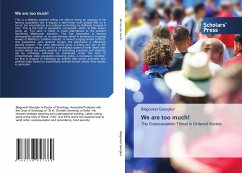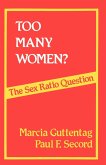This is a Malthus inspired writing but without being an apology of his famous population law. It argues a well-known truth people feel on a hunch but international and national authorities try defiantly to gloss it over. This is the truth of population overgrowth, which, at that, keeps going up. The work is intent to trace alternatives to the present worsening Malthusian situation. The first alternative is leaving demographic situation on its own devices, which is tantamount to giving leeway to Malthus's "positive checks". In view of surging armed conflicts, and pandemics, and rampant hunger this alternative is effectively gaining traction. The other alternative gives a totally new spin to the overpopulation issue. It calls for a centralized system of birth-death ratio control where the entire arsenal of controlling practices and methods will be ruthlessly enforced on individuals under the form of indiscriminate state population-reducing policy. A necessary condition for that to happen is instituting an entirely new social, economic and political order based on scientifically defined human needs, food needs, in particular.
Bitte wählen Sie Ihr Anliegen aus.
Rechnungen
Retourenschein anfordern
Bestellstatus
Storno








